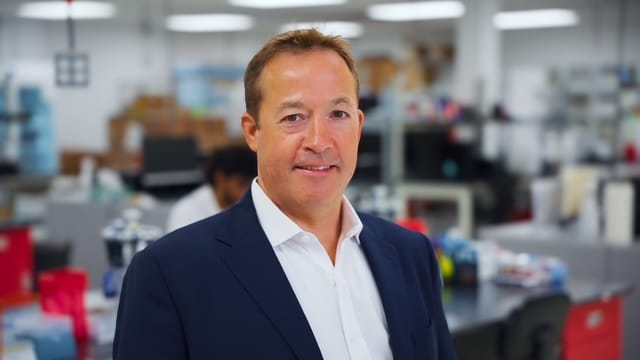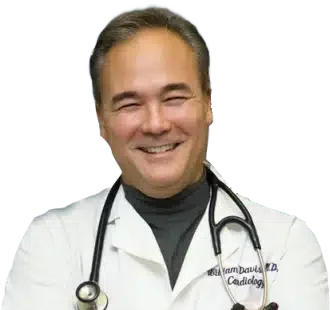We love seeing our Functional Medicine Certified Health Coaches making an impact across the globe!
At The Functional Medicine Coaching Academy, we are proud to deliver the international gold standard in health coaching certification. We are the only program designed in collaboration with The Institute for Functional Medicine (IFM) and approved by The National Board for Health and Wellness Coaches (NBHWC). Our award-winning program is approved and recognized by many national and global bodies, many of whom also accept our program for continuing education credits.
But what does Functional Medicine Health Coaching look like in action? Three of our alumni share how they’re using their training as Functional Medicine Certified Health Coaches to make a difference for their clients:

February 2018
United States
Stacy Tager, FMCHC, NBC-HWC
Stacy Tager was featured in an interview with Shoutout LA, where she discussed her coaching business Root Wellness. Like many FMCA students, she did not come from a health care background. She was an executive training supervisor, fitness studio liaison, project manager and college admissions officer—and today, she is a National Board Certified Functional Medicine Health Coach.
Root Wellness is not just a health coaching practice, it’s Stacy’s passion. As she describes in her interview, “A wellness journey is not about achieving perfection, it’s about progress. The small little steps we take each day toward better health. I embrace the approach to health care that emphasizes positive behavior change to improve health and well-being by focusing on the essential core components of nutrition, exercise, and lifestyle. My clients and I brainstorm and work together using various modalities to develop a strategy to achieve specific, measurable, achievable, realistic, time bound program goals.”
“The best piece of advice I can give is to find a mentor, ask lots of questions, and be willing to put yourself out there. Every-once-in-a-while you may doubt yourself. Dust yourself off and keep moving forward. JUST. START. COACHING. I know that’s easier said than done. Your practice may change over time as you learn what area you want to focus on. Just remember, FMCA is there to support you and help you realize your coaching goals.”
Stacy Tager, FMCHC, NBC-HWC

March 2019
United Kingdom
Leora Mofsowitz, FMCHC
Leora Mofsowitz has been in the Functional Medicine and nutraceutical world for 14 years. She shared her journey on how and why she became a Functional Medicine Certified Health Coach with podcast host Lauren Kinghorn on Inspiring Mompreneurs.
After leaving her job in sales in South Africa, she found herself wondering how to accelerate her career. She shortly moved to London, and in addition to being a full-time mom, she now offers group coaching to clients to encourage behavioral change. Leora has modeled her business after the Group Coaching Model because of its low-cost option for clients wanting to work with a health coach.
Leora is fueled by her passion to help others feel inspired and realize their fullest health potential. She currently works with entrepreneurs, business leaders and CEOs who are ready for change and to accomplish goals, while being the best versions of themselves. Like many successful business owners, Leora dealt with Imposter Syndrome, which is the internal experience of believing that you are not as competent as others perceive you to be. When doubts crept in, Leora focused on this: “The highlight is that the health coaching field is continuously evolving and developing, and I know that I am making a difference.”
“I gained the opportunity to believe in myself as someone who can contribute to making this world a better place—seeing myself as being able to contribute to the lives of others and make a difference.”
Leora Mofsowitz

July 2016
United Kingdom
Suzy Glaskie, FMCHC
Suzy Glaskie, Functional Medicine Certified Health Coach and UK Health Coaches Association member, was recently featured in an article in Financial Times. She discussed how health coaching is relatively new to the UK, but is slowly becoming mainstream in companies and in National Health Service preventive medicine programs, which are designed to reduce doctor visits and hospital admissions.
Suzy works with her clients on nutrition, sleep, stress management, and exercise, in her company Peppermint Wellness. However, getting to where she is now was no small feat. Suzy worked in Public Relations for global food ingredients companies, but after nearly 4 years, her son was diagnosed with “bowel disorder.” Her life then turned into what she called a merry-go-round of high dosage, prescription laxatives—none of which helped her son get better. Year after year, she was told that his condition had absolutely nothing to do with food. Finally she decided to take matters into her own hands and try the alternative route. The results opened her eyes and changed her son’s life forever. Soon after, she became a health coach and began using her positive psychology skills to help clients focus on what is right with them in order to make sustained lifestyle changes, rather than focusing on what is wrong with them.
Why choose to become a Functional Medicine Certified Health Coach?
Simply put, Functional Medicine helps bridge the gap between what the healthcare industry traditionally provides and what many people need.
In the conventional healthcare system, we’re all used to physicians who often have to limit the length of appointments, which means spending less time with their patients. While a very strong connection exists between diet and health, many medical professionals do not have the education in nutrition (specifically whole foods nutrition) to provide the kind of guidance and support that patients need. Functional Medicine practitioners can spend more time with patients AND help them make the connection between what they eat and how it affects their health.
Expanding Individual Coaching to The Group Coaching Model In Your Business
As a Functional Medicine Health Coach, you have the opportunity to combine coaching with group visits at a provider’s office. The key principle of the Group Visit Model is that it expands visit time so that coaches can partner with patients and really give them the information that they need in order to successfully implement behavior change and make better choices.
Using Positive Psychology In Your Coaching Practice
As a Functional Medicine Health Coach, your job is to use positive psychology to support treatment by encouraging clients to explore potential contributing factors, and taking an active role to help them reach their physical and health-related goals.
As a coach, your ultimate goal is to positively impact the client’s life—this goal is the first priority, and all others feed indirectly into this goal. The number one goal of coaching is to improve the client’s life, and positive psychology coaching plays an important part in that process.
Whether you are building your coaching business, working with a practitioner, or creating your own health coaching path, you are able to succeed in this industry, and FMCA is here to help you build the foundation you need.
Our Latest Blogs
-

Food Sensitivity Testing 101: Supporting Clients with Inflammation and Gut Issues
Read Full Article: Food Sensitivity Testing 101: Supporting Clients with Inflammation and Gut Issues -

Protein 101: The Health Coach’s Guide
Read Full Article: Protein 101: The Health Coach’s Guide -

Women’s Health and the Vaginal Microbiome: A Probiotic Breakthrough
Read Full Article: Women’s Health and the Vaginal Microbiome: A Probiotic Breakthrough

